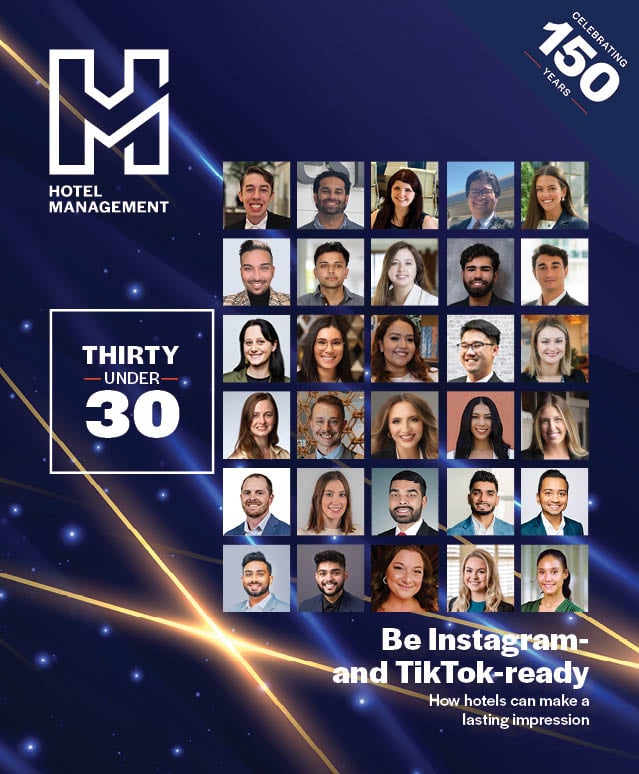BERLIN — Hospitality entrepreneurs need to have a “big vision” because “size matters” when it comes to attracting capital and talent, according to Benjamin Habbel, CEO, Limestone Capital.
Speaking at IHIF EMEA 2025 in Berlin, Habbel described the “start-up” culture of his firm which was born out of a desire to leverage technology in the hospitality space. “My personal background prior to Limestone was technology,” he said. Despite coming from a “hospitality family,” he pursued an early ambition to work in Silicon Valley, with a technology career at Google, before returning to Europe. “My technology friends didn’t understand why I would go from tech to a rather established industry – for me that was what made it so attractive,” he said. “There is a lot of carry over in our business.”
Habbel noted that there were still quite a lot of start-up “elements of culture and execution if you look under the hood of Limestone." Today the private equity firm focuses on investing and creating value in the experience economy, primarily by developing and incubating branded platforms, often alongside a value-add real estate strategy. “We now have eight operating companies plus a businesses that are related or that we invested in,” he said.
Pioneering Spirit
That pioneering spirit has led the firm to “question everything,” he added. “We try to look at things from first principles and question every line item in contracts. That in turn comes with a lot of benefits—not buying into conventional wisdom.”
Limestone, he said, broke through by “not necessarily partnering with third party consultants,” which was “a non-traditional approach when we launched, although today you see it more and more.” That also meant that they were looking to partner with founders that have “very strong ideas and are extremely hands-on.”
He advised hospitality founders “to start with very high convictions and [the ability to] convince everyone around them about their idea.” He added: “If you have a really high conviction thesis, it makes bringing on talent much easier.”
Think Big
He also advised founders to “think big,” explaining that “it is much easier to work on big projects or with a big vision.” He added: “Looking back, I think we should have thought a lot bigger. In the tech world, you can think really big and shoot for the moon.” He said that when working with young founders today he was advising them to “do things five times bigger – size matters when it comes to vision. Then see what the market says – you will get feedback really quickly.”
He added that Limestone doesn’t “have an issue finding talent” and noted that in looking for partners, the firm continued to look for individuals “with an extremely high degree of intelligence, empathy and integrity.” He said that also preferred founders who had “started a small business and survived, rather than [having] a fancy title in a big firm.” He added: “We see an enormous magnet of talent coming in—I would be worried if that changes.”
Another driver for founding Limestone had been the lack of “financing infrastructure for small to medium-sized businesses in hospitality,” he added. “It’s easier to raise $20 million for a ‘crappy’ start-up idea than build a bricks-and-mortar hotel in a tier-1 city,” he said. “With our first property in Portugal, we spent 18 months trying to find traditional bank financing. Today we are lucky that we have our own debt fund and can just buy things in cash if we need to.”
Habbel referenced Limestone’s recent deal for the Nobu Hotel in Shoreditch as evidence of their ambitions. “It will become out first Aethos-branded hotel in London later this summer, reflecting our typically fast transformation times.” He added that another brand, Crafted, will be launching its first hotel in summer 2025 in Powdermills, Sussex, just 70 minutes from London. Country-club Craft plans to scale its concept across the UK and Europe over the coming years.
This story originally ran on Hotel Management's sister site Hospitality Investor.

